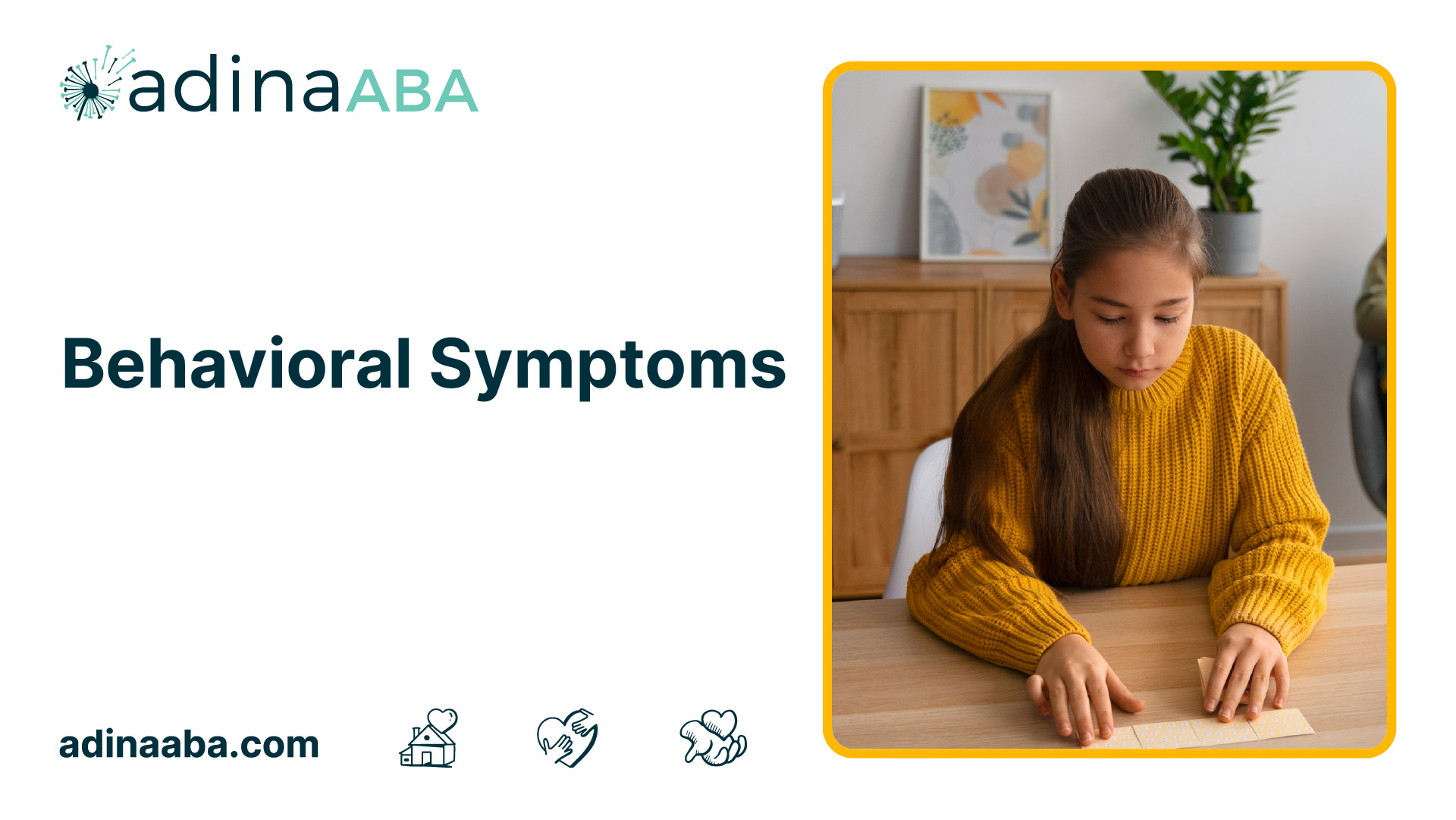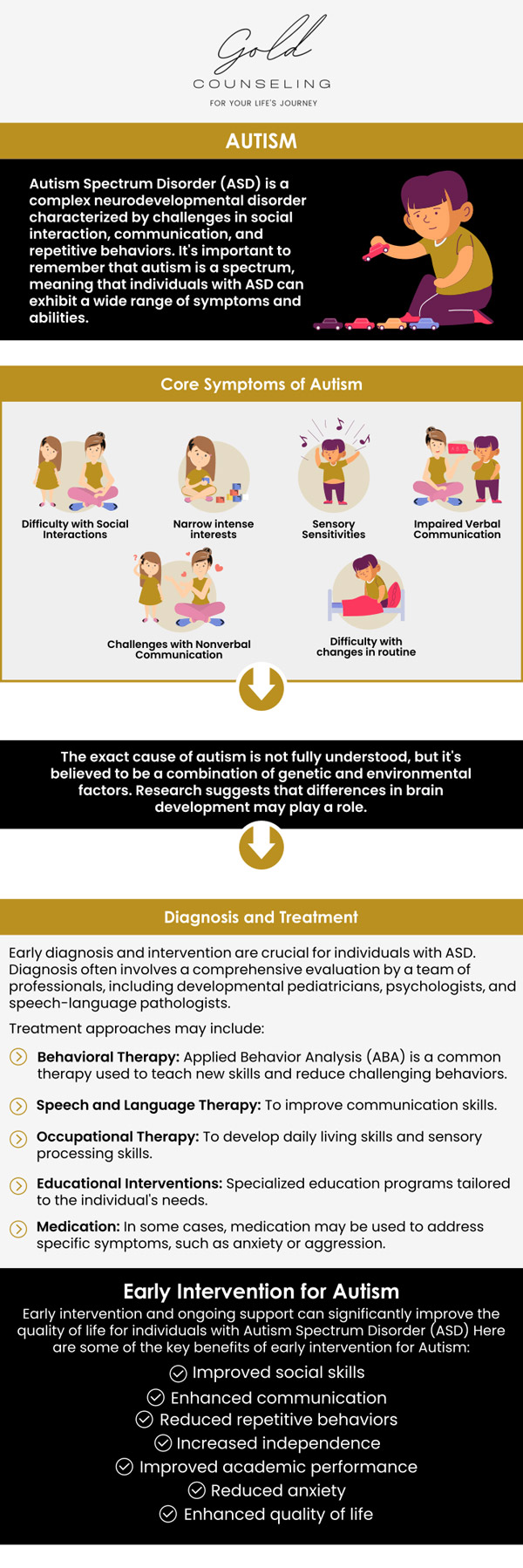Trick Indicators and Signs And Symptoms to Identify in Individuals With Behavioral Autism
When you run into someone with behavior autism, identifying crucial indicators and signs and symptoms is important. You could notice difficulties in social communications and communication, in addition to a solid requirement for routines. Furthermore, sensory level of sensitivities can cause overwhelming experiences. Recognizing these qualities can improve your assistance and treatments, however there's more to discover concerning exactly how these behaviors show up in daily circumstances. Let's discover what these indicators truly resemble.
Challenges in Social Communications
When you connect with somebody on the autism range, you may see they fight with social cues and communication. These difficulties can make social communications feel frustrating for them. You might see them preventing eye get in touch with or standing too close or also far away throughout conversations, which can create misconceptions. They could not detect body movement or face expressions, making it harder for them to gauge exactly how others are really feeling.
When they do engage, they might speak about their passions in great detail without observing if you're interested. Recognizing these difficulties can help you come close to communications with empathy and perseverance, cultivating a much more comfy setting for both of you.
Trouble With Verbal and Non-Verbal Communication

Non-verbal interaction can be a lot more tough. You might see an absence of eye contact or limited use motions, which can make interactions really feel awkward. Facial expressions may not constantly line up with the conversation, causing confusion regarding their feelings. Recognizing these indicators is crucial, as it aids you much better assistance and engage with people on the autism range. By recognizing their interaction obstacles, you can cultivate much more significant connections and give an extra encouraging environment.
Repetitive Behaviors and Regimens
Communication challenges commonly accompany various other indications of autism, such as repetitive behaviors and a solid preference for regimens. You may see that people with autism frequently take part in details, repeated actions, like hand-flapping, rocking, or repeating phrases. These behaviors can provide comfort and a feeling of control in an often frustrating globe.
Regimens are similarly important; many people prosper when they adhere to a structured timetable. You may discover that modifications to these routines can cause considerable distress. As an example, if they have an everyday routine of consuming morning meal at a certain time or following a specific route to college, any type of disturbance can trigger anxiety.
Acknowledging these patterns aids you comprehend their behavior and give support. By accommodating their need for regular and enabling recurring activities, you can create a much more comfy setting that eases their challenges.
Sensory Level Of Sensitivities

Usual Sensory Triggers
Sensory sensitivities can substantially affect everyday life for individuals with autism, as particular stimuli commonly set off overwhelming responses. Common sensory triggers include loud noises, intense lights, and strong scents. Comprehending these triggers can assist you handle your environment better.
Behavior Reactions Discussed
Comprehending your behavioral reactions to sensory level of sensitivities is important, as they commonly disclose how you communicate with the world. You may discover that certain noises, lights, or structures overwhelm you, leading to anxiousness or discomfort. When confronted with these stimulations, you could take out, cover your ears, and even respond boldy. These feedbacks aren't simply peculiarities; they're your way of handling overstimulation. You might likewise locate on your own looking for specific sensory experiences, like deep stress or quiet atmospheres, to help ground on your own. Identifying these patterns helps you recognize your needs far better and can guide how you connect blog them to others. By recognizing your sensory sensitivities, you can work towards producing a setting that feels a lot more convenient and comfy for you.
Coping Techniques Introduction
Identifying your sensory level of sensitivities is simply the first step; now it's time to check out coping strategies that can aid you take care of those experiences efficiently. Start by creating a sensory toolkit customized to your needs. Developing an organized regimen can additionally offer predictability, lowering anxiety around sensory overload.
Limited Interests and Focus
While several people create a broad variety of rate of interests, those with autism typically show restricted rate of interests and an extreme concentrate on specific topics. You might notice that a person with autism can spend hours diving right into their favorite topic, whether it's a particular kind of train, a specific flick, or a scientific concept. This intense focus isn't simply a leisure activity; it can end up being a central part of their identification and social communications.
You may locate that discussions revolve around these interests, and they may have a hard time to engage in wider subjects. By recognizing and recognizing these limited interests, you can foster a supportive environment where they feel valued and comprehended, enabling for more significant connections and interactions.
Emotional Regulation Difficulties
People with autism commonly face obstacles in emotional guideline, which can be influenced by their intense emphasis on particular passions. You may see that when an individual is deeply involved in a recommended activity, they can experience solid feelings, whether enjoyment or frustration. This intensity often makes it tough for them to shift gears or handle their feelings when things do not go as intended.

Variability in Developing Milestones
When it comes to developmental milestones, you'll notice that individuals with autism often show a vast array of irregularity. You may see a child excel in language abilities however struggle with social interactions.
It's crucial to acknowledge that each individual's trip is distinct. Observing these patterns can aid you comprehend their strengths and requires better.
Often Asked Questions
Just How Is Autism Diagnosed in Kid and Adults?
To detect autism in adults and kids, professionals review behavior, interaction abilities, and social interactions. They often utilize standardized examinations, interviews, and observations to determine if a private fulfills the criteria for autism range problem.
Exist Different Kinds Of Autism Range Disorders?
Yes, there are various sorts of autism spectrum disorders, including Asperger's disorder and prevalent developing disorder-not otherwise specified. Each kind differs in extent and qualities, so comprehending these differences can aid you better assistance people with autism.
What Treatments Are Effective for Individuals With Autism?
When considering reliable treatments for here are the findings people with autism, you'll discover alternatives like Applied Actions Analysis, speech therapy, and work-related treatment. Each method can aid boost interaction, social abilities, and day-to-day operating customized to specific demands.
Can People With Autism Lead Independent Lives?
Yes, people with autism can lead independent lives. With the appropriate assistance, abilities training, and resources, you can assist them establish self-sufficiency, manage daily tasks, and thrive in various atmospheres, promoting their independence.
How Can Families Assistance Enjoyed Ones With Autism?
You can sustain your liked ones with autism by creating a structured setting, urging their rate of interests, practicing patience, fostering interaction, and advertising social skills. Celebrate their success, regardless of exactly how little, and build an encouraging neighborhood.
Although numerous individuals on the autism range can make use of and comprehend language, they usually face considerable difficulties with both non-verbal and verbal interaction. Acknowledging these indicators is crucial, as it assists you better assistance and engage with individuals on the autism range. You might notice that people with autism often involve in specific, repetitive actions, like hand-flapping, shaking, or repeating phrases.Sensory sensitivities can considerably influence everyday life for individuals with autism, as particular stimuli often cause overwhelming responses.When it comes to developmental milestones, you'll notice that individuals with autism usually reveal why not try these out a broad range of irregularity.